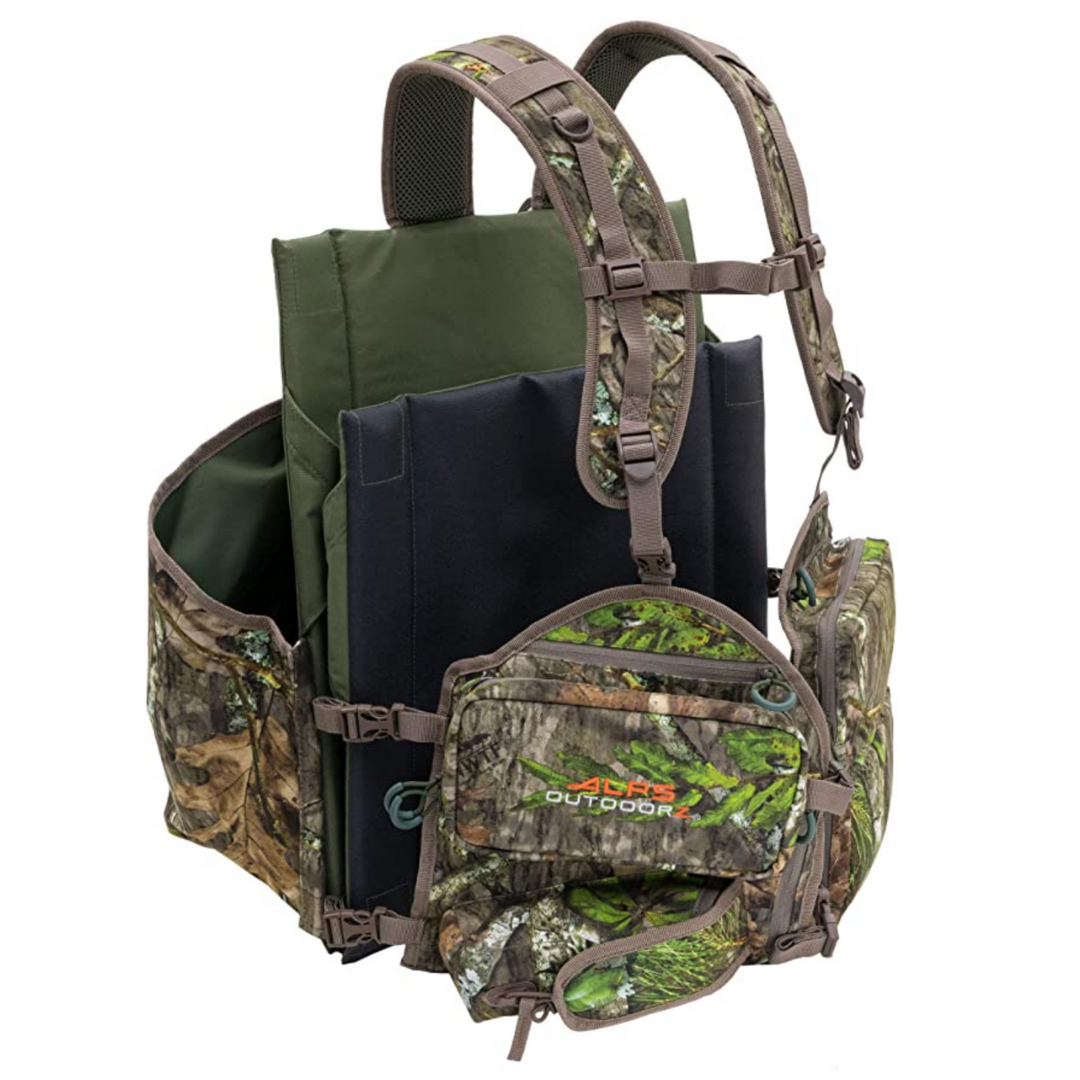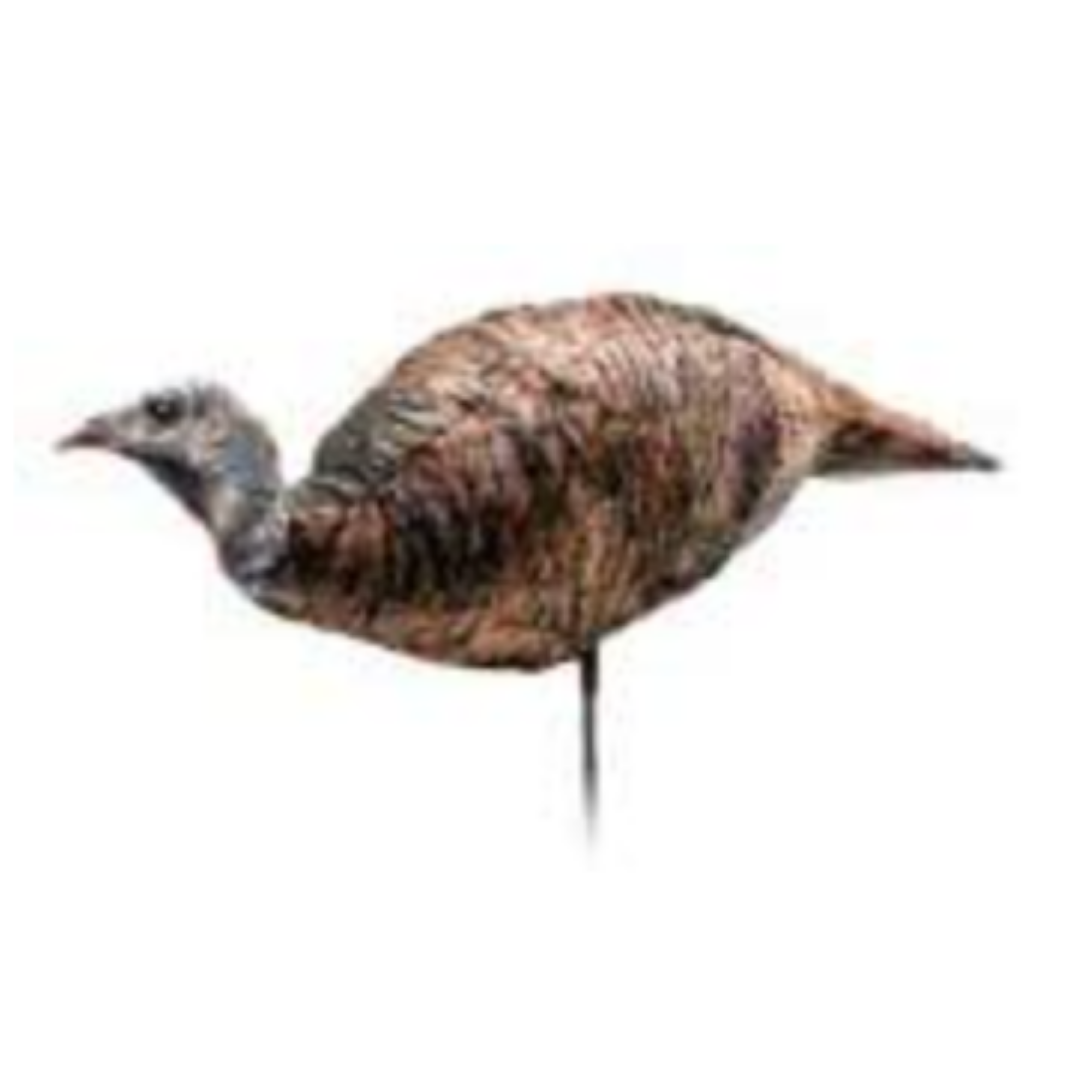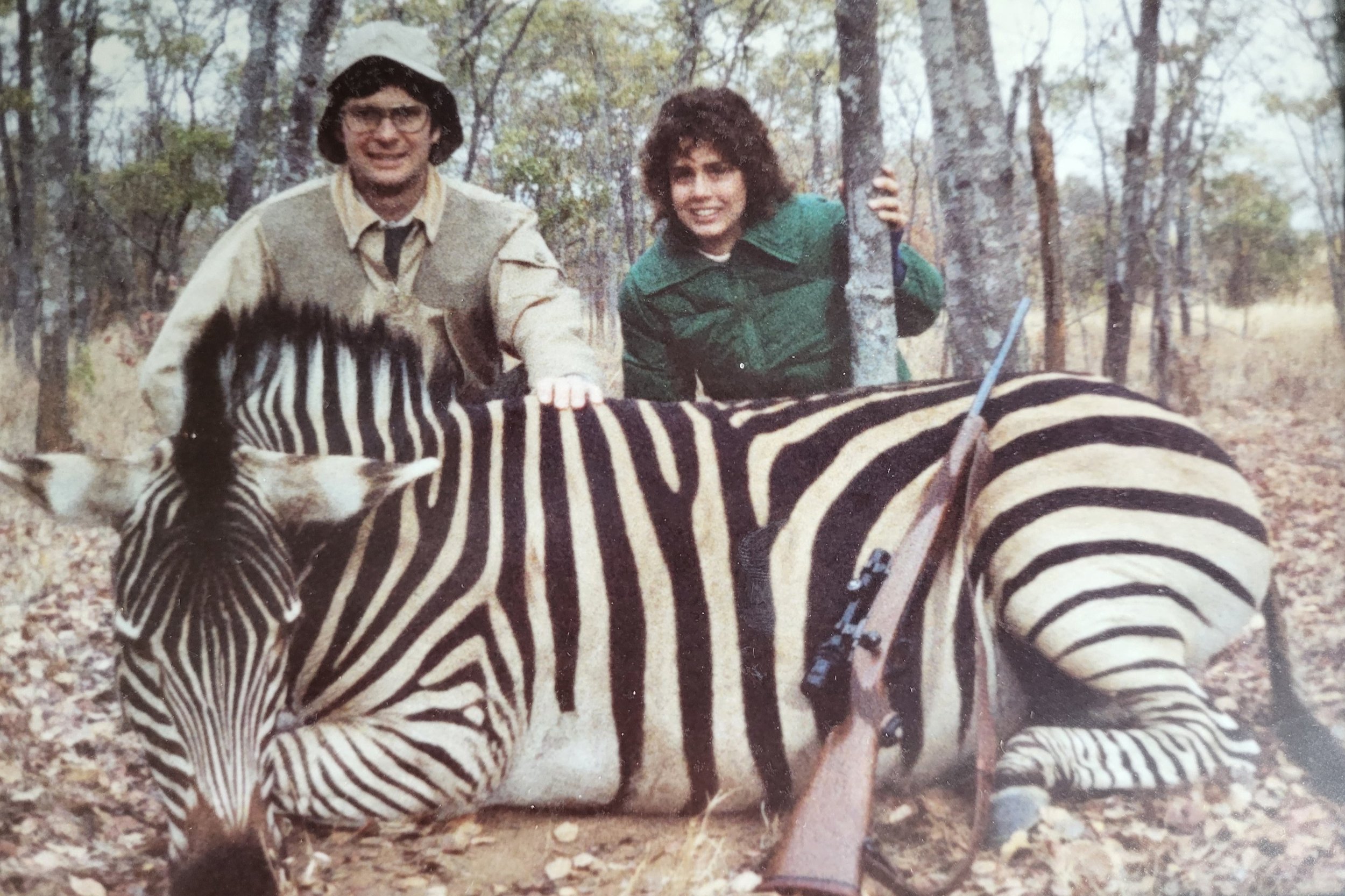Snowmaggedon Spring Turkey
Turkey tracks in snowIt is inevitable if you hunt the north country. Some year snow is bound to join you on a spring turkey hunt.
Spring does not mean winter’s over. The mountains, especially, do not graciously surrender snow and cold, not even into May. How you deal with this can determine whether you get your gobbler or settle for watching reruns back at hunting camp.
The following hunt took place in South Dakota’s Black Hills a few years back. I was helping a pal of mine with his goal of tagging a mountain Merriam’s. A surprise storm brought 40 mph winds, 12 inches of snow, and 20 degrees F! It shut down many highways and the flock of turkeys we’d been working the previous three days. Here is the recount of the white madness.
Blizzard Warning, You Turkeys
Merriam's turkeys in winter.“A blizzard warning has been posted through noon tomorrow for the entire region. No travel is advised,” my Chevy truck radio blared in warning. Too late. I was already out in it, wheeling along a backroad, barreling a four-wheeled drive path through a foot of snow toward a turkey rendezvous.
I was guiding a friend from Minnesota and it was the fourth and final day of his Black Hills hunt. One flock dominated by a three-year-old patriarch tom called our mountainside destination home. The flock had sidestepped us the previous three days. Several times we’d called the entire flock within 50 yards, but the gobbler never bubbled with enough enthusiasm to charge up from the rear for a clear shot.
Now, I feared, the blizzard would shut him up. My thoughts raced between setup options and steering maneuvers to keep the Chevy on the road. After weighing the pros and cons of a half dozen strategies, we decided to employ an intercept combined with soft calling while trying to avoid frostbite.
Turkey hunting success with a Merriam's endingSnowstorm Merriam's huntingAltered Plans
Have a backup plan for weather and other factors.Previously, I had been calling raucously with hopes of inciting the Tom into charging forward. That often works on a sunny, spring day, but I knew the birds would be quieter than usual in the life-threatening weather. To match the gloomy mood, I would use subtle flock talk to let the turkeys know other birds were sharing their pain. To ensure we would be within hearing range of the birds, I planned to set up on a steep, pine-choked slope the turkeys passed through several times a day.
Arriving late due to the storm’s ferocity, I spied the flock through the snowflakes. They were already feeding in the valley’s at the forest’s edge. We donned snow camouflage, ducked into a side canyon, and eased up the hill to intercept the birds. Once in place, we scrunched under the pines, sitting on pads to keep our rumps warm and dry. We awaited developments.
After two hours, I thought two things: I’m nearly frozen and I think I heard a hen yelp. Only then did I pull my hands from warm pockets to work the first calls of the day. My message was brief and to the point: “Where are you? Can we join you?” My short series of yelps, soft and questioning, lasted less than 30 seconds. A hen answered softly from below followed by a stifled gobble. I waited another five minutes or so and repeated the cadence, which received the same stifled gobble, but this time much closer to our position. Perhaps our two-hour vigil was about to pay off.
Here They Come
Using a box call to find a quiet tomI called no more, but soon we could see a mass of huddled bodies shuffling our way. I gave them one more soft cadence of yelps. That was all it took. Turkeys began streaming past our pine-tree hideout, heads poking this way and that, looking for the visitors, towing the big gobbler in their wake. He looked like an overstuffed, black beanbag chair. When he hit the 25-yard line and stood clear of any hens, I fired him up with the raspy rattle of a boss hen call. He uncoiled his neck for a tall look around, and my buddy had his shot.
A few broken feathers fell with the snowflakes, settling around the fallen gobbler, his dark, glossy feathers in stark contrast to the white. Our adrenaline surge warmed our spirits, but not our hands. We did not stand around basking in the glory. No, we grabbed that snow bird and jogged to the truck, shivering in anticipation of fossil fuel heat.
A spring blizzard turkey hunt can produce, but you’ll probably want to wrap it up before you freeze to your seat.
For more about Mark Kayser and ways to follow him on social media, visit www.markkayser.com.
BUY NOW FOR TURKEY SEASON!
CONTACT INFORMATION
Mark Kayser Hunting Lifestyle www.markkayser.com
Rocky Mountain Hunting Calls Turkey Calls www.buglingbull.com
HuntStand Hunting App and Map Printing www.huntstand.com
Montana Decoy Co. Miss Purrfect XD Turkey Hen Decoy www.montanadecoy.com
Cabela’s Turkey Hunting Headquarters www.cabelas.com

















